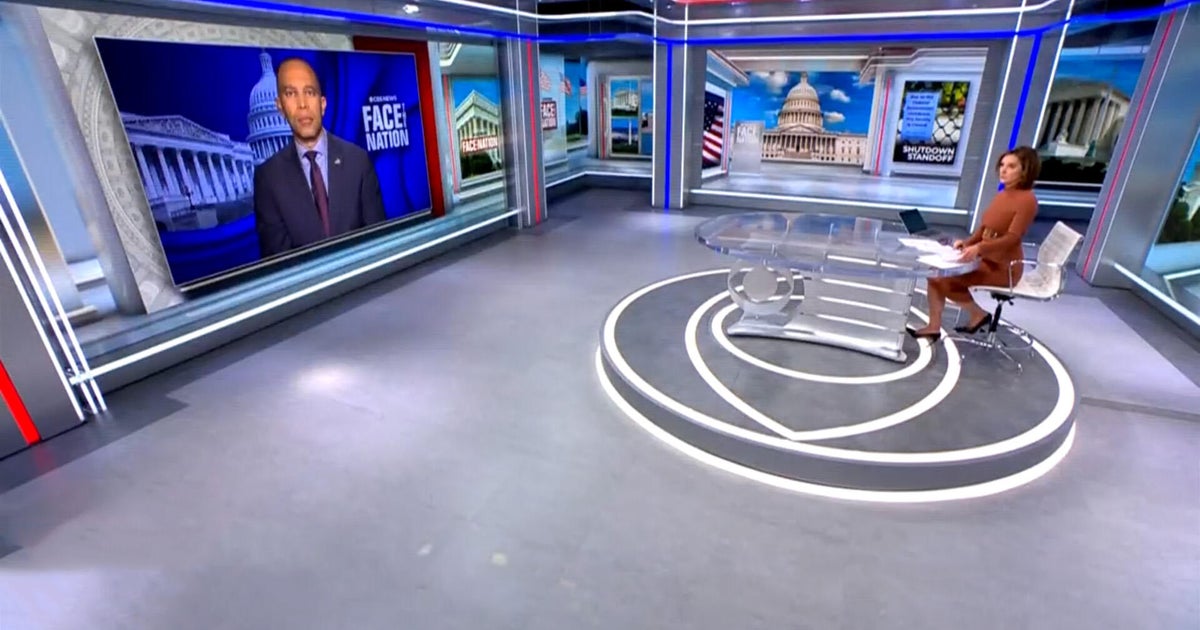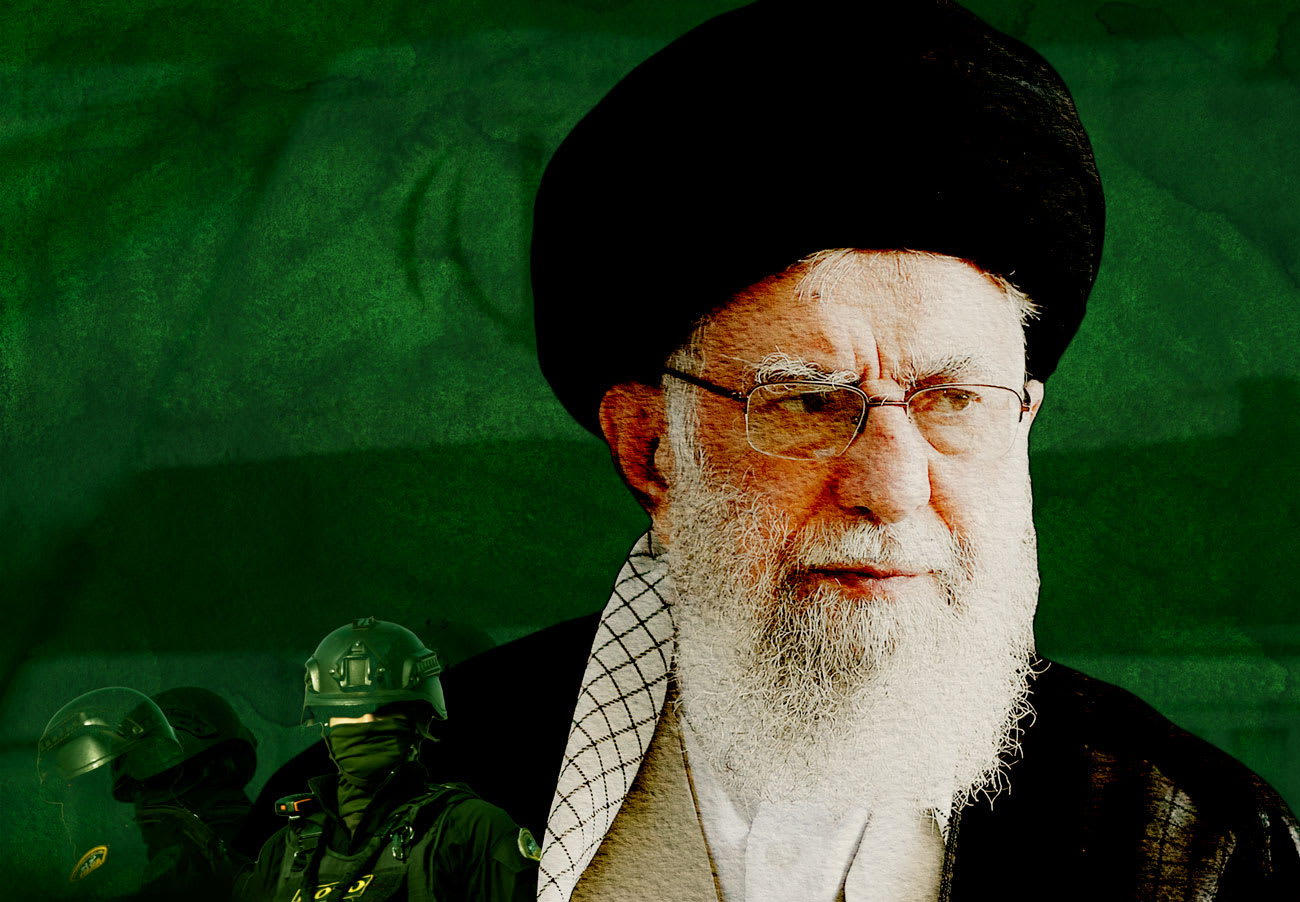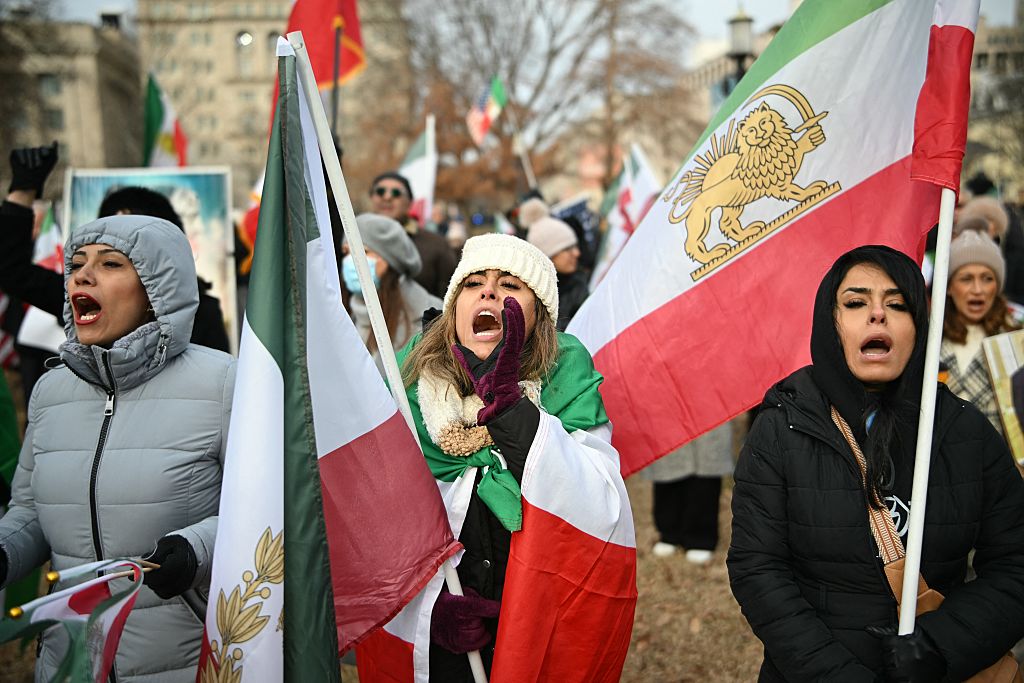Transcript: Secretary of State Mike Pompeo on "Face the Nation," June 16, 2019
The following is a transcript of the interview with Secretary of State Mike Pompeo that aired Sunday, June 16, 2019, on "Face the Nation."
MARGARET BRENNAN: Good morning and welcome to "Face the Nation." We begin today with the increasing tensions between the U.S. and Iran. And Secretary of State Mike Pompeo. Good morning, Mr. Secretary and happy Father's Day.
SECRETARY OF STATE MIKE POMPEO: Thank you. Good morning.
MARGARET BRENNAN: We've had this series of events in past days, the attacks on the tankers and these reports of a missile being fired at a U.S. drone. How is the U.S. going to respond?
SEC. POMPEO: Margaret, I think you have to put it in the context of 40 years of behavior inside the Islamic Republic of Iran. This is- this is consistent with how they have behaved previously. They did it when they were in the JCPOA. They built their missile program. We relieved sanctions. They took American sailors hostage. This is a regime that has caused much trouble around the world. The last 40 days we've seen a number of activities, not just these past two, but four other commercial ships which challenged the international norms of freedom of navigation. The United States is considering a full range of options. We have briefed the president a couple of times we'll continue to keep him updated. We are confident that we can take a set of actions that can restore deterrence which is our mission set.
MARGARET BRENNAN: You say a full range of options. Does that include a military response?
SEC. POMPEO: Of course. Of course. The president will consider everything we need to do to make sure, right? But what's the president said? We don't want Iran to get a nuclear weapon. The previous administration put them on a pathway that virtually guaranteed that they could get there. So we withdrew from the ridiculous JCPOA and are moving ourselves towards a set of policies which will convince Iran to behave simply like a normal nation. And so you've seen them attacking international waterways trying to frankly drive up the price of crude oil around the world so that the world will cry, "uncle" and allow Iran to--
MARGARET BRENNAN: Why would they do that if they're so cash strapped and they need these customers? Why would they attack them?
SEC. POMPEO: Because Iran can't sell its crude oil. We've stopped them from doing that. We've put sanctions in place that have taken them from roughly two point seven barrels- million barrels per day million barrels per day with American sanctions, American sanctions alone.
MARGARET BRENNAN: CENTCOM released this video of purporting to show an IRGC Revolutionary Guard patrol boat pulling up alongside these vessels and removing a mine from the hull of the ship. How certain are you that this is the IRGC and will you take that evidence and present it to our allies and the United Nations?
SEC. POMPEO: Of course we will--
MARGARET BRENNAN: When?
SEC. POMPEO: --and- and we don't just purport, that's what that video is. This was- this was taken from an American camera. This is this the stuff- this is the real data. Yes, we've shared it with allies already. You've had the chance to see it. I made a bunch of phone calls yesterday, I'll make a whole bunch more calls today. The world needs to unite against this threat from the Islamic Republic of Iran. Margaret, Margaret--
MARGARET BRENNAN: And is the IRGC--
SEC. POMPEO: Yes, Margaret--
MARGARET BRENNAN: --definitely, the Revolutionary Guard Corp.
SEC. POMPEO: It- it- it is. And- and, Margaret, I'll remind you, too. China gets over eighty percent of its crude oil transiting through the Strait of Hormuz. South Korea, Japan, these nations are incredibly dependent on these resources. We're prepared to do our part. We always defend freedom of navigation. We are going to work to build out a set of countries that have deep vested interest in keeping that strait open to help us do that.
MARGARET BRENNAN: So when you talk about military response, you're talking about that keeping the waterways open? You're not at this point talking about a strike on Iran?
SEC. POMPEO: Oh goodness. President Trump has said very clearly, he doesn't want to go to war. At the same time, we've made very clear that--
MARGARET BRENNAN: Do you have the legal authorization for a strike on Iran?
SEC. POMPEO: We- we always have the authorization to defend American interests. Remember, they now have attacked U.S. aircraft. They- on June 6th, there was a missile fired from Yemen. With- that we assessed had Iranian assistance that took down an MQ-9 aircraft. These are attacks on fundamental, international norms, and now on American interests, and we always have the right to defend our country.
MARGARET BRENNAN: But I ask you because there are questions about whether the existing Authorization for Use of Military Force, the AUMF, would actually include a strike on Iran.
SEC. POMPEO: Sure.
MARGARET BRENNAN: Are you confident that you could go, and not have to ask Congress for permission to take action?
SEC. POMPEO: Margaret, I- I don't want to get into hypotheticals. But the American people should be very confident. The actions that the United States takes under President Trump will always be lawful, always consistent with our Constitution, and we will always do the hard tasks it takes to protect American interests, wherever they are.
MARGARET BRENNAN: But do you need Congress's permission?
SEC. POMPEO: To- to do what, Margaret? I mean depend- you- I- I don't know how to answer the question in the abstract. Permission--
MARGARET BRENNAN: Well, you said a range of options are being looked at.
SEC. POMPEO: Yes. Every- every option we look at will be fully lawful.
MARGARET BRENNAN: Well I want to ask you that because when you were trying to lay out this case as you know some allies have said that video released was not enough to convince them. With the exception of the U.K. and Saudi Arabia, some allies are saying we need to see more and hear more from the United States. President Trump, as you said, he campaigned against Middle East wars. But there is also this perception that the administration is spoiling for this fight. You were a vocal critic when you were in Congress of the nuclear deal you called JCPOA earlier. The national security adviser right now is one of the architects of the 2003 war in Iraq. According to the latest Economist poll, 51 percent of Americans say the president is not honest versus 33 who say he is. If you've a credibility gap that is going to be hard for you to sell something to the American public. How do you resolve that?
SEC. POMPEO: Margaret, we're not selling anything. These- these are simple facts. I've had many conversations over the past frankly weeks talking about Iran's activity. No one doubts the dataset. I haven't- I haven't heard a single person say they think--
MARGARET BRENNAN: The German foreign minister said the video was not enough.
SEC. POMPEO: The German foreign minister has seen a great deal more than just that video. He will continue to see more. I will concede there are countries that just wish this would go away and they want to act in a way that is counterfactual. No- no one disputes that this is the Islamic Republic of Iran taking these actions to deny this international right away- waterway and the freedom of navigation that is a fundamental right of every country to travel through that. No- I've seen no one deny it, and I'm confident that as we continue to develop the fact pattern, countries around the world will not only accept the basic facts, which I think are indisputable, but will come to understand that this is an important mission for the world.
MARGARET BRENNAN: One of the things when you're at the podium at the State Department earlier this week you presented as a fact was an attack that was carried out in Kabul in May. the Taliban said they carried it out, but you blamed Iran for it. What evidence do you have that Iran was behind that attack?
SEC. POMPEO: Margaret, in that same statement the Taliban said they killed 10 people. I would suggest to you that the credibility of the Taliban is not something you ought to bring onto your show. We- I- I- I--
MARGARET BRENNAN: But you believe that Iran was behind it?
SEC. POMPEO: I- I- we have confidence that Iran instigated this attack. I- I can't share any more of the intelligence. But I wouldn't have said it if the intelligence community hadn't become convinced that this was the case.
MARGARET BRENNAN: So there's more that you can't share with us to back that up?
SEC. POMPEO: Yes- yes, ma'am. That's correct.
MARGARET BRENNAN: Iran state media says that they are going to start looking at ramping up their production of nuclear fuel. What does the US do to stop this if you've already withdrawn from the nuclear accord?
SEC. POMPEO: Think about that. Iran is now announcing that in a matter of days, they can begin to spin up their nuclear program. This tells you how flawed the deal was, right? Tells you that the deal had no capacity to actually stop them--
MARGARET BRENNAN: But what do you do now? Do you just keep putting more sanctions on? Desperation doesn't always lead to the best decision making.
SEC. POMPEO: Our- our intention is this. We- we know that their nuclear program accelerates if they have more money and wealth. If they have more capacity, more resources, they have access to metals and to materials and to fissile material. If we relieve sanctions, their nuclear program presents an even greater risk to the United States. And so our mission has been very clear: deny them the wealth and resources and their capacity to build out a nuclear program, and be prepared to do all that it takes to prevent that from happening.
MARGARET BRENNAN: I want to ask you quickly about Russia. The New York Times is reporting that the US is escalating digital attacks cyber attacks inside of Russia to hit back on attempted interference in 2018. The president has called this report both false and treasonous which then suggests that there is some truth to it. So which is it?
SEC. POMPEO: I never comment on intelligence matters.
MARGARET BRENNAN: The president said it was--
SEC. POMPEO: I- I never comment on intelligence matters having- having come from being CIA director, I know how important it is. But you should know, and your viewers should know that the United States of America, under President Trump, has taken enormous effort to ensure that our elections are not interfered with, not from Russia, not from any other country in the world. It's a serious matter, it's one that this administration took seriously, at the direction of President Trump from the very beginning of his time in office, and we'll continue to do that. I only wish the previous administration had been so serious about preventing election interference.
MARGARET BRENNAN: It's interesting that we are sharpening this point, because it's the same week when we heard from the president, as you know who told an interviewer on ABC earlier this week, that he would first listen to a foreign government if they tried to offer him dirt on an opponent and then make a decision as to whether or not to inform the FBI. As the former CIA director, someone who talks every day to foreign governments, what would you advise the president to do?
SEC. POMPEO: President Trump clarified his remarks. I think it's pretty clear he'll do the right thing. I'm highly confident of that. I- I don't have anything else to add.
MARGARET BRENNAN: Which is--
SEC. POMPEO: I- I saw his remarks. He said- he said, I think in both instances he said he'd- he'd do both. He said he'd report this to the FBI. Look it- it- it- it's you all present this as--
MARGARET BRENNAN: But, he presented- no, he presented- he used the word "maybe"--
SEC. POMPEO: Yeah.
MARGARET BRENNAN: --and that it was- he'd listen first--
SEC. POMPEO: I listen- I listen to this very closely. The president made very clear he's going to do the right thing. I have enormous confidence in that. I've watched him do it.
MARGARET BRENNAN: Call the FBI?
SEC. POMPEO: I've watched him do the right thing every time we've had an important national security decision to be made. He's evaluated options and made very good choices about how to proceed.
MARGARET BRENNAN: Mr. Secretary, thank you for time.
SEC. POMPEO: Margaret, thank you.





